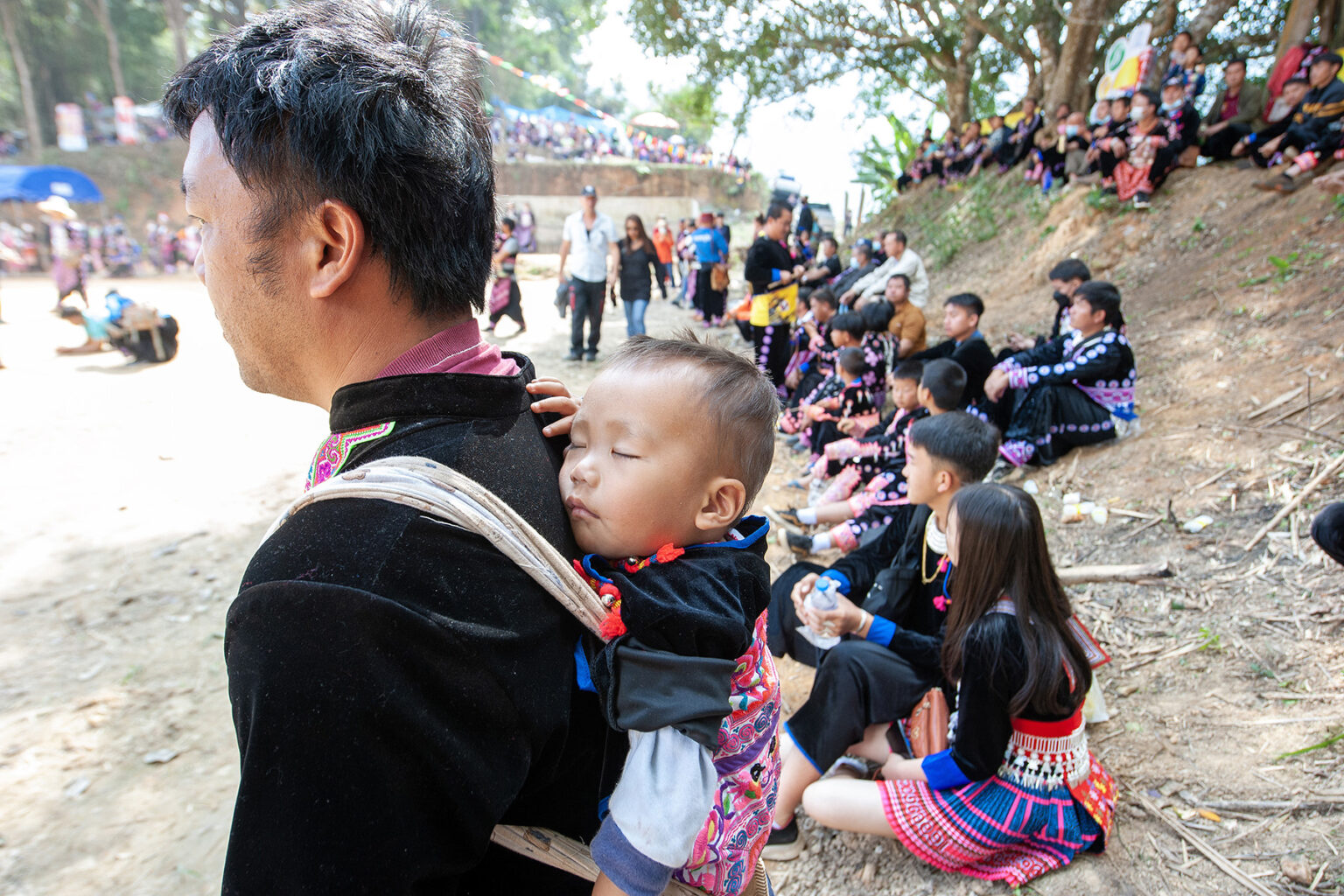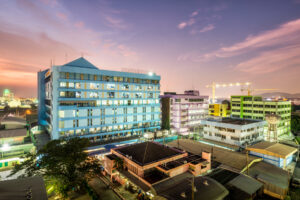Thailand offers a wealth of public and private maternity care options for parents-to-be. However, navigating them can feel overwhelming if you are unfamiliar with the country’s healthcare system and unsure where to start.
So to help you find out what you need to know about having a baby in Thailand, including everything from fertility treatments to infant vaccination schedules, this article covers the following:
- Pregnancy and childbirth in Thailand
- Accessing maternity services in Thailand
- Insurance for maternity costs in Thailand
- Fertility treatments and having a baby in Thailand
- Having a baby and pregnancy tests
- Prenatal care in Thailand
- Giving birth in Thailand
- Postnatal care in Thailand
- Registering a birth in Thailand
- Adoption in Thailand
- Non-residents, visitors, and tourists giving birth in Thailand
- Parental leave in Thailand
- Child benefits in Thailand
- Useful resources
Allianz Care
Allianz Care is a world leader in providing international health insurance. Their various premiums provide professionally designed solutions for a variety of expat lifestyles. So, wherever your life takes you, make sure you have the right health protection for you and your family with Allianz Care.
Pregnancy and childbirth in Thailand
Thailand’s birth rate has been steadily declining over the past decade, falling by 2.95 births per 1,000 residents between 2011 and 2021. Moreover, there were only 485,085 newborns in 2021 versus 550,042 deaths, resulting in a net population decrease of 64,957.
This decline is largely because more people are making the conscious choice not to have children due to economic, societal, educational, and environmental concerns, as well as facing fertility issues.
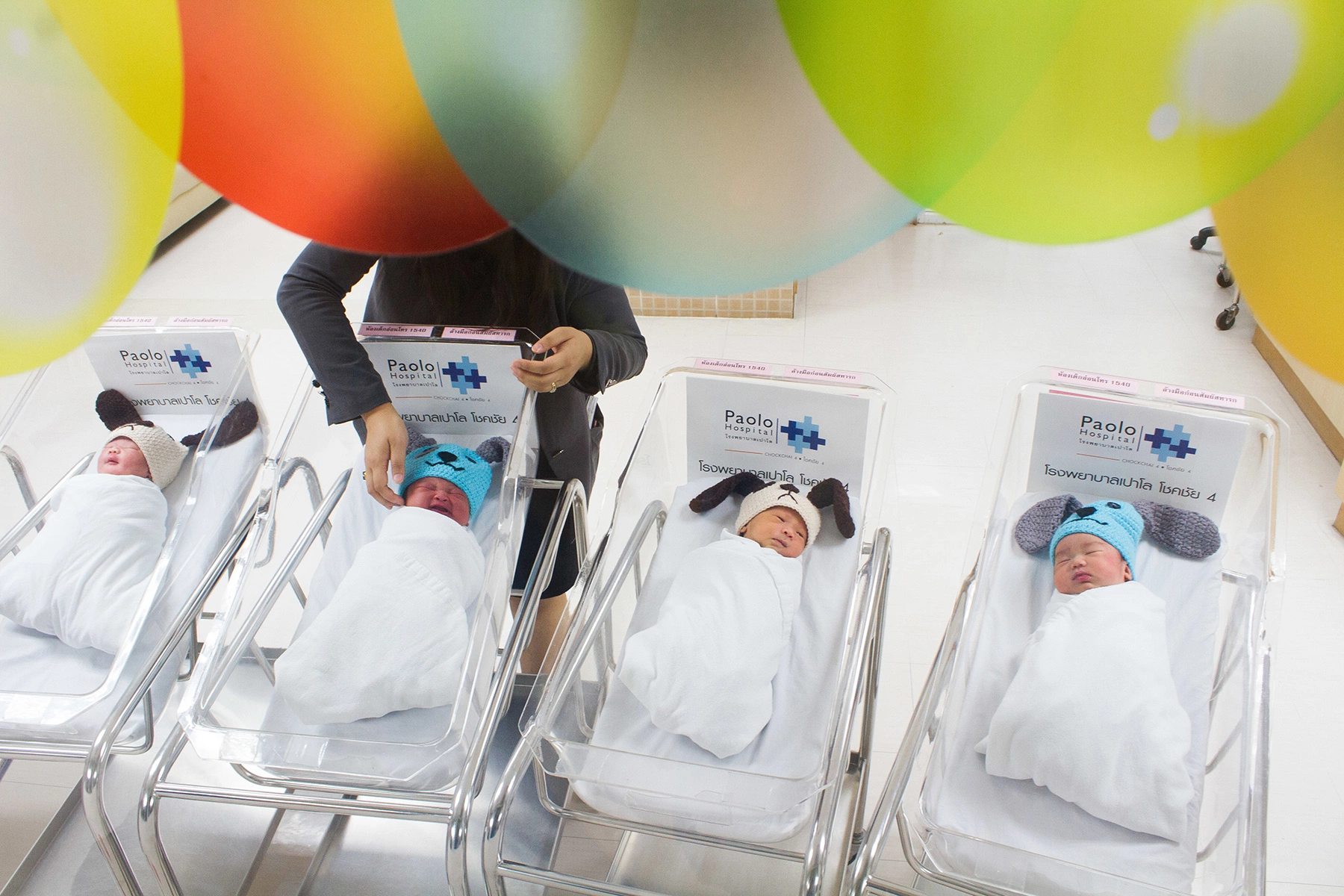
Around 99% of babies are delivered in hospitals which generally provide high-quality maternity care and childbirth services. That said, most expats end up paying for private hospital care due to the lack of subsidized healthcare for internationals in Thailand.
The country’s private hospitals typically provide world-class, all-inclusive maternity and labor packages. Therefore, you can expect to have a dedicated obstetrician, midwife, or a whole team present for the delivery at a lower average cost than in many other countries.
Accessing maternity services in Thailand
Fortunately, anyone can access public health facilities in Thailand by visiting public hospitals and clinics. However, only Thai nationals enjoy free healthcare under the Universal Coverage Scheme (UCS).
That said, expats who work and pay social security are entitled to some subsidized benefits via Thailand’s social security system, which is locally called Prakan Sangkom.
Anyone else, on the other hand, will need to pay for maternity services themselves.
Insurance for maternity costs in Thailand
Thai nationals enjoy various UCS maternity benefits (around eight to 10 hospital visits), including:
- Pregnancy tests
- Medical consulting and routine prenatal health check-ups, including ultrasounds
- Antenatal care, including blood tests and Down syndrome screening during pregnancy
- Mental health monitoring
- Maternal dental care
- Vaccinations for the newborn
For more information about this (in Thai), you can call the UCS hotline at 1330 or the Social Security Office (NSSO) helpline at 1506.
Expats who work in Thailand and pay social security, on the other hand, can access some maternity and childbirth services at a subsidized cost. This includes:
- ฿15,000 for labor at any hospital (for no more than two children)
- Maternity pay at 50% of the average wage for 90 days
- A small, monthly childcare benefit for children aged six or under
They can also get some assistance with expenses. However, they must pay the balance out-of-pocket.
Notably, it is possible to blend public and private healthcare to lower the costs and ensure that you get everything you need. For example, this might include prenatal checks, ultrasounds, and appointments at a public hospital paired with private hospital add-ons.
In this case, you can contact your private health insurance provider to determine precisely what your coverage includes. Of course, it is also advisable to compare different providers before you sign up.
Some of the reputable providers that cater to expats in Thailand include:
Fertility treatments and having a baby in Thailand
Thailand’s private health sector offers various fertility treatments, including:
- Infertility screening and counseling
- Egg-and-sperm freezing
- Laparoscopic/hysteroscopic surgery to view and identify abnormalities in the pelvis, uterus, fallopian tubes, or ovaries
- Pre-implantation genetic diagnosis (PGD) in assisted reproductive technologies (ART)
- Surgical sperm retrieval, preparation, and selection
- Intrauterine insemination (IUI), Intracytoplasmic sperm injection (ICSI), and In vitro fertilization (IVF)
- Embryo scope
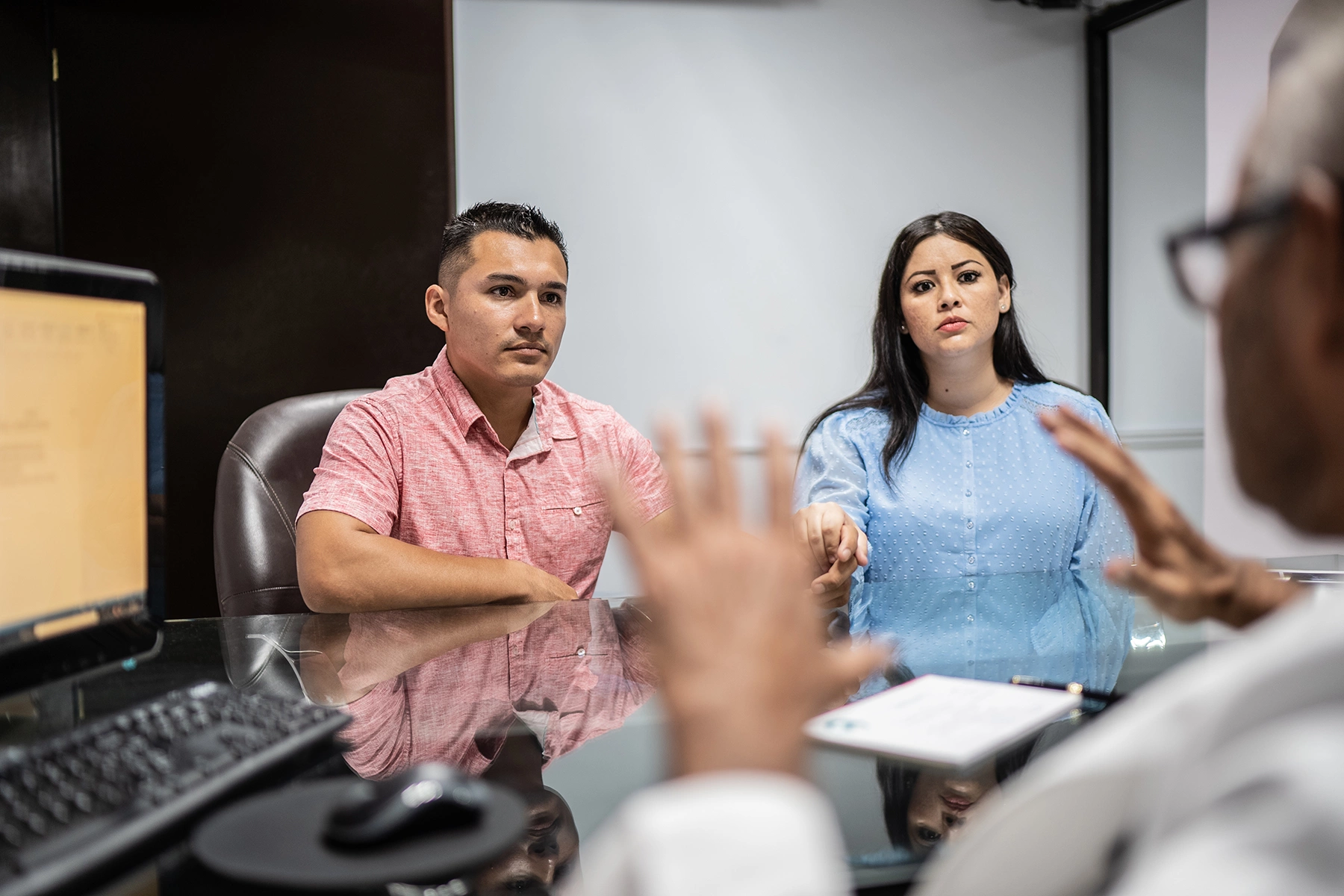
However, public health insurance does not cover these procedures. As a result, fertility treatment is only affordable to those with the funds to access the private healthcare sector.
Having said that, the National Health Security Office (NHSO) has agreed to offer free fertility treatment (excluding surrogacy) to eligible Thai citizens, although this has yet to come to fruition.
Same-sex marriages have officially been recognized since September 2024. However, many LGBT+ members will still face issues accessing Thailand’s fertility health services.
Surrogacy in Thailand
The Thai government halted commercial surrogacy in 2014 and made it illegal in 2015.
Notably, in 2022, there was a move to backtrack the law on commercial surrogacy. However, this reversed policy still needs to be fully implemented. That said, Thai citizens can use surrogacy as long as there are no payments involved.
Same-sex couples can currently access this fertility treatment to have a baby, but only if they are legally married.
Having a baby and pregnancy tests
Pregnancy tests are widely available online and from pharmacies, supermarkets, and convenience stores such as 7-Eleven. They cost between ฿30 and ฿1000 on average and are relatively reliable.
Notably, public health insurance does not cover pregnancy tests unless they are carried out at a clinic or hospital under the UCS, which provides free family planning.
If you tested positive at home, you need to make an appointment for a blood and urine test to confirm the pregnancy at any hospital, gynecologist, or women’s health clinic.
Once you have medically confirmed the pregnancy, you need to choose a hospital for prenatal care, delivery, and postnatal services as soon as possible.
Prenatal care in Thailand
Typically, you will go to the same public or private hospital for prenatal and postnatal care and the baby’s birth. You can visit any hospital to see the facilities and get more information before you decide on your primary maternity health provider. Your hospital choice depends on your budget, health insurance, preferred setting and type of birth options, and access to English-speaking medical health professionals.
Of course, those living in Bangkok should choose a hospital nearby to avoid traveling – when in labor – in the city’s congested traffic.
Alternatively, you can blend public and private healthcare to lower costs while covering all aspects of care. As an expat, if you work in Thailand and pay social security contributions, you can get additional assistance with expenses; however, this coverage is limited. You will need to pay any costs above out of pocket if you do not have private health insurance.
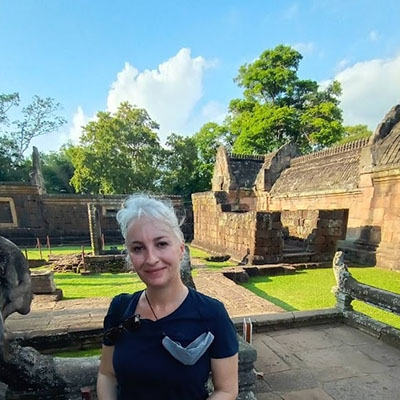
Local writer and expert
Jane Evans
Maternity clothes tend to be very traditional in Thailand. You may notice that most pregnant women only wear huge maternity dresses because they believe nothing should restrict the bump, meaning that fashionable maternity outfits are hard to find.
Prenatal appointments
Take your ID and any health insurance documentation, such as a Prakan Sangkom card (บัตรประกันสังคม) to your first appointment for registration purposes, which should be around ten weeks of pregnancy.
Most hospitals will refer you to a family doctor or gynecologist first and then an obstetrician. Also, if you attend the same hospital throughout your pregnancy, you will have a dedicated obstetrician for each appointment.
The UCS for Thai nationals includes:
- Free prenatal consultations
- Blood tests
- Scans and ultrasounds
- Scheduled medical checkups
- Prenatal supplements and vitamins
- Mental health support
The doctor or nurse will give you a sarong for gynecological examinations in Thailand. After removing clothing on your lower body, you can wrap it around your waist to protect your modesty somewhat.
Some doctors do an ultrasound for each appointment, but not all. Blood tests, fetal checks (especially for Trisomy 21 or Down syndrome), and ultrasounds can be expensive. Therefore, if the UCS does not cover you, check the costs involved beforehand and if your health insurance policy includes these costs.
Whether you have public or private healthcare, you can expect regular appointments with an obstetrician or gynecologist throughout your pregnancy. They will log any medical notes in a pregnancy book you must bring to each appointment. If complications arise, your doctor will monitor and discuss precautions and follow-up treatments with you.
In the private sector, some expats shop around for a doctor they connect with – or have good word-of-mouth referrals – especially if they want a natural childbirth.
However, public facilities do not allow you to choose your doctor and are less flexible about who can attend the birth.
Scans, tests, and checks
Apart from the routine health checkups and ultrasounds, these are some of the tests and checks that you can expect in Thailand throughout a pregnancy:
| First trimester | Second trimester | Third trimester |
| Due date prediction from heart rate and fetal length | Full anatomy scan | Body and organ growth check |
| Down syndrome test (Trisomy 21) | Scan to check the baby’s sex (approx. 20 weeks) | Heart defect check |
| Trisomy 18 check | ||
| Heart defect check |
Prenatal classes
Pregnant women in Thailand should attend at least four prenatal health visits to learn about what to expect during childbirth. As for expats, private hospitals and organizations offer prenatal classes and workshops you pay for and enroll in via the hospital.
Comprehensive classes cover the following:
- Birth plans
- How to know when you are in labor, what to expect during labor, and how to deal with it
- Possible complications and what to do/or which medical intervention may be used
- What to expect in the hours and days after the birth
- Breastfeeding
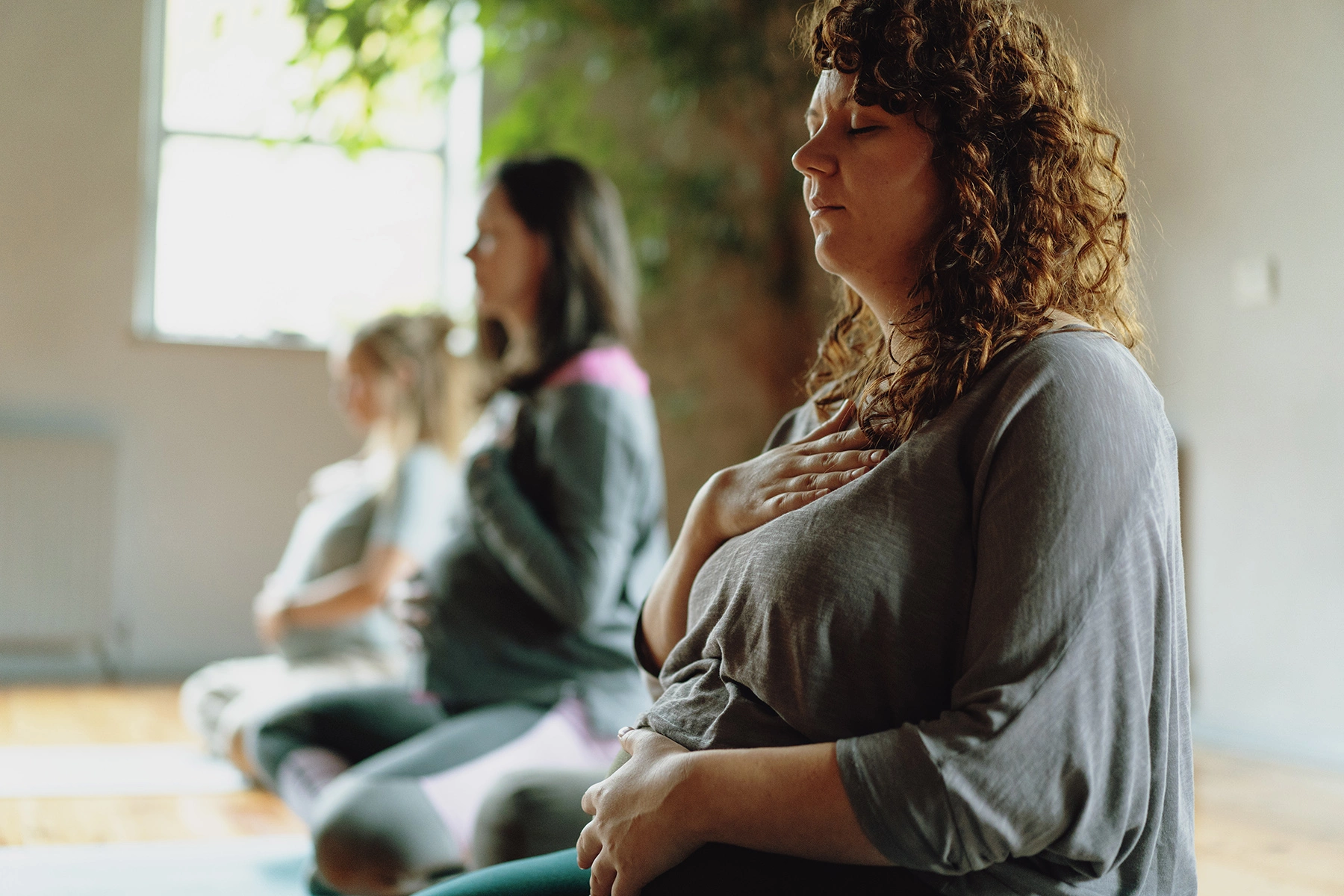
Various private classes (often in English) are also available in Bangkok, Chiang Mai, Samui, Phuket, and Pattaya, such as:
- Prenatal yoga
- Childbirth preparation
- Pilates
- Gym classes
Ask the hospital, your healthcare provider, friends who are parents, or expat social media groups for recommendations.
Giving birth in Thailand
Many internationals choose all-inclusive private maternity packages at a hospital of their choice, as the UCS does not cover them. Indeed, giving birth at a private hospital can be much more expensive than at a public facility, so it is recommended to have private health insurance to cover the costs.
For example, the table below shows an approximate price comparison of public and private maternity expenses in Thailand:
| Hospital type | Vaginal birth cost | Caesarian section cost (twins cost up to ฿239,000) |
| Public sector | ฿27,000–40,000 | ฿44,000–80,000 |
| Private sector | ฿35,000–159,000 | ฿82,000–159,000 |
The highest-priced private hospitals with world-class facilities include Samitivej and Bamrungrad in Bangkok. Most private facilities (e.g., Bangkok Hospital) have branches across Thailand.
Private hospitals have excellent resources and are more comfortable, convenient, and accommodating than public hospitals. If it is a low-risk pregnancy without any labor complications, you will have the flexibility to choose the type of delivery (e.g., a water birth) and who to have as a birthing partner present in the room. While you are still in hospital, the package may also include:
- Newborn vaccinations
- A hearing test
- A birth certificate (saving you time and extra paperwork)
- A baby gift basket (with all the essentials for the first few weeks)
Private doulas (Thai and international) are widely available in Thailand, and some private hospitals have a directory.
Public hospitals
Public hospitals (e.g., Siriraj Hospital in Bangkok) with good medical facilities and expert staff are best for limited budgets. However, the availability of private rooms may be limited, and English-speaking medical professionals are not guaranteed. So, public hospitals are best for expats with a Thai partner or those fluent in Thai. In addition, waiting times can be several hours for prenatal appointments due to an overwhelmed healthcare system.
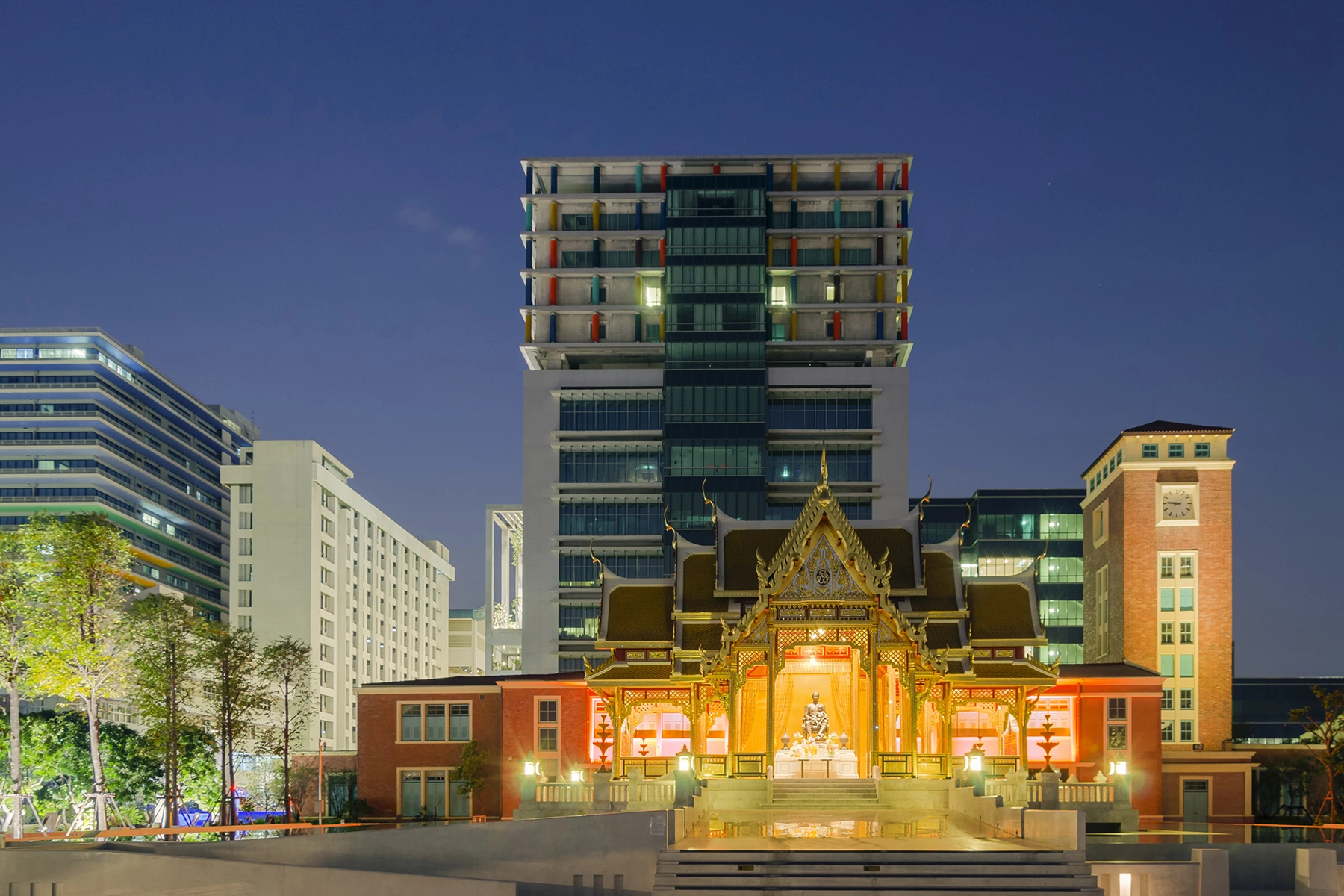
Each province has a public hospital where anyone can see a doctor or give birth. If you have social security, you’ll need to take your Prakan Sangkom card (บัตรประกันสังคม) to claim any benefits. Note that in Thai public hospitals, you may need someone to help you with things that the nurses don’t do, such as emptying catheter containers and fetching things.
When you choose a public hospital, it is better to visit it in person and speak to the medical professionals at the maternity department than try to find information online.
Caesarian sections
It is essential to be aware of the risks and benefits of both vaginal and caesarian births before deciding on what’s best for you and your baby.
However, some doctors in Thailand may be over-enthusiastic about giving elective caesarian sections because they have more control over the timing and risks, and these procedures are more profitable than natural births.
Doctors may also advise pregnant mothers to elect for a caesarian if their baby is large. This is especially true for babies with Thai mothers and expat fathers.
Length of stay, pain relief, and what to expect
For a natural birth, expect to stay in the hospital for two or three nights, and for a caesarian section, three or four nights.
Some childbirth packages include prenatal care, while others don’t, so inspect each in detail and discuss it with the facility before you make a decision. Hospitals may also offer extra services and amenities not included in the package.
Pain medication can cost extra with options including:
- Epidural analgesia (spinal block)
- Local anesthesia (for episiotomy)
- Nitrous oxide with oxygen (gas and air)
- Pethidine
- Transcutaneous electrical nerve stimulation (TENS)
Hospital nurseries provide 24-hour care for newborns. After the birth, a pediatrician and nurses will primarily care for the infant, only bringing it to the mother for feeding so that she can rest. Nurses also help parents with breastfeeding, bathing, and other aspects of newborn care.
Before leaving with your baby, the hospital will expect you to settle the bill, whether you have health insurance or not, so it is crucial to check with your insurance provider how to pay and claim.
Many hospitals help with birth registration at a local district office, and some private hospitals, like Bamrungrad, even have the authority to give you your baby’s birth certificate in Thai and English.
Medical tourists who plan to travel to Thailand to give birth should do so before the 36th week of pregnancy and ensure their travel health insurance will cover the costs.
Home births
You can opt for a home birth, but it is not very common as Thai doctors, nurses, and midwives no longer recommend them. With access to hospitals nationwide, home births are mainly a thing of the past or only happen in remote, rural areas.
For home births, it is traditional to build a hut for the laboring mother to stay in during and after birth. After the baby arrives, she would sit over a herb-infused fire (อยู่ไฟ) and use an herbal compress to help with the healing process. A midwife will be present.
Postnatal care in Thailand
Depending on the type of care you choose, you should expect to see a pediatrician, maternity nurse, or GP for postnatal care.
Your baby will need around seven appointments between the first week and the first year of birth. During these visits, medical professionals will offer assistance with breastfeeding, administer vaccinations, and check your baby’s growth and development. They will also include maternal health checks, for example, monitoring your healing progress and how you are coping with motherhood.

Your postnatal care package at private hospitals will also allow you to choose your baby’s pediatrician, which may not be the case in the public sector.
Finding English-speaking baby groups and classes nationwide can be challenging. However, there are private ones in Bangkok and other urban areas with large international communities. For instance, Bumps & Babies runs various pre and postnatal support groups and activities. It is associated with Bangkok Mothers & Babies International (BAMBI), a project of the Childbirth and Breastfeeding Foundation of Thailand (CBFT – มูลนิธิการคลอดบุตรและให้นมบุตรแห่งประเทศไทย). They accept small donations instead of fees.
Vaccinations
Mandatory vaccinations for babies in Thailand during their first 13 months include the following schedule:
| Age | Vaccination | Illness |
| At birth | BCG | Tuberculosis |
| At birth | Hepatitis B pediatric | Hepatitis B |
| At 2, 4 & 6 months | DTwP-Hib-HepB | Diptheria, Tetanus, Pertussis, Haemophilis Influenzae, Hepatitis B |
| At 2, 4 & 6 months | OPV | Poliomyelitis |
| At 2, 4 & 6 months | RV5 | Rotavirus |
| At 4 months | IPV | Poliomyelitis |
| At 9 months | MMR | Measles, Mumps, Rubella |
| At 13 months | JE-livatd | Japanese encephalitis |
| At 13 months | DTwP | Diptheria, Tetanus, Pertussis |
Parents can access voluntary pediatric influenza shots for their children from six months to two years, especially if they are at a higher risk of developing pulmonary infections and complications. Only a baby in a risk group will get yellow fever or meningococcal jabs from nine months. Your healthcare provider will give you a vaccine book and schedule for your baby at birth.
If you access private healthcare services, Bangkok Hospital and Bangrumrad Hospital offer various clearly-priced vaccination packages.
Nurseries and childcare
There is a wealth of private childcare options in Thailand, with centers, private nannies, au pairs, and nurseries available.
Private nannies are not regulated in Thailand, so getting personal recommendations is advisable. Daycare centers and nurseries must be licensed by law, and some offer childcare for babies under six months.
English-speaking nurseries and childcare are pricier, with fewer options nationwide.
Breastfeeding
Like many countries, Thailand recognizes the value of breastfeeding and recommends it at least for the first six months. However, it can be challenging, causing unnecessary stress, so it is your choice how to feed your baby.
If you intend to breastfeed exclusively, tell your medical professionals not to give the baby formula after the birth. Some private hospitals have breastfeeding clinics providing information and support to new mothers.
Registering a birth in Thailand
In Thailand, births must be registered at the local district office (i.e., Tessaban) – in the same municipality as the hospital – within 30 days. Once you have the birth certificate, you can request a transfer of registration to your residential municipality.
You will need the following paperwork:
- Baby name written in Thai
- A form of photo ID like a passport or Thai ID card
- A document certifying the birth (most hospitals enter these details into an online system accessible by the Tessaban)
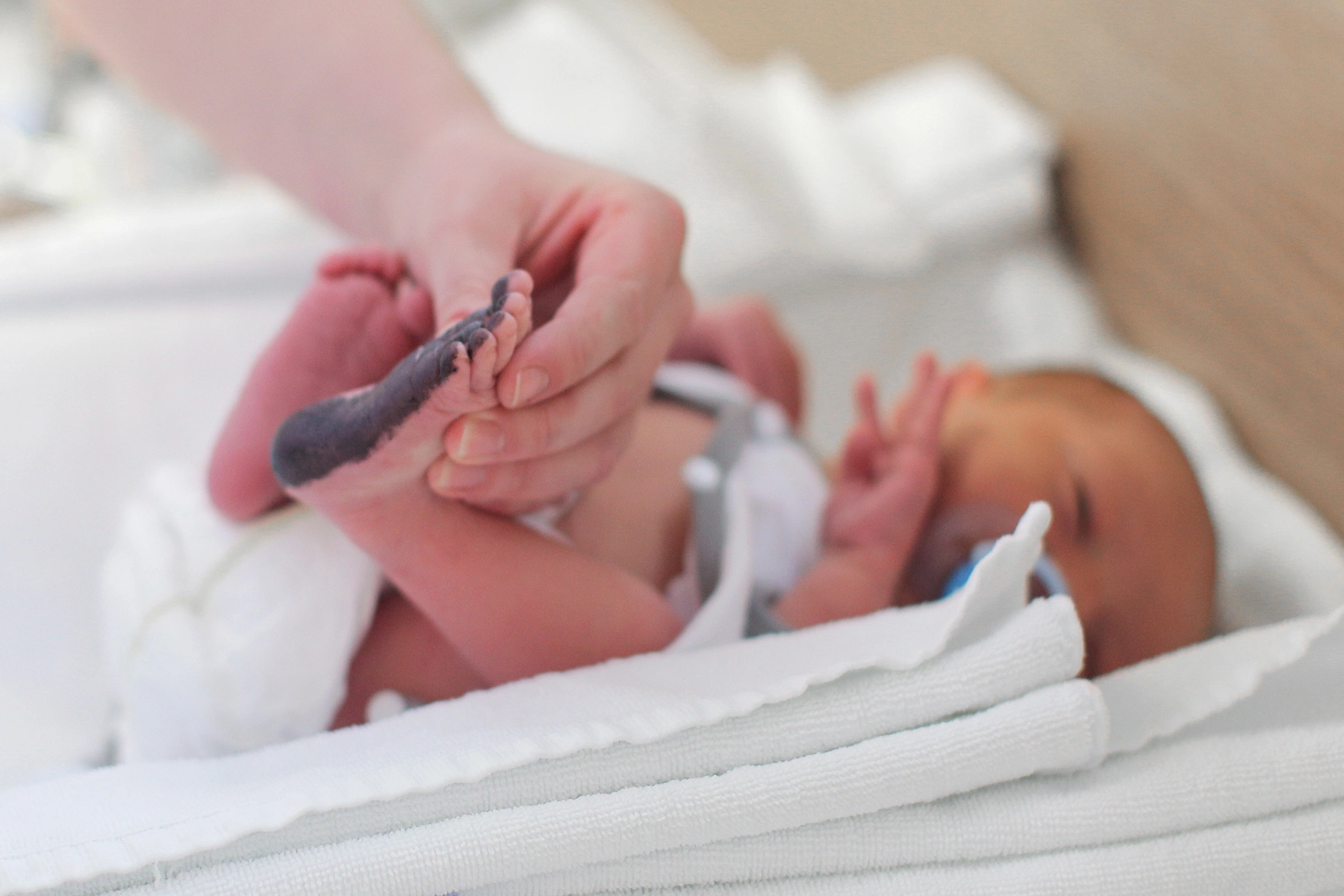
The Tessaban will issue a birth certificate (สูติบัตร) specifying the following details:
- Infant’s full name (in Thai)
- The time, place, and date of birth
- Age
- Sex/Gender
- Nationality/ethnicity
- The parents’ full names and ages (in Thai)
The child must take the mother or father’s surname as the country does not allow double-barrelled last names.
Anyone can register the birth, and many private hospitals do all this for you if you provide a passport and an official document with your name spelled in Thai. Remember to contact your consulate for information on registering a birth in your home country.
If the baby has at least one Thai parent, you can also apply for their Golden Card (บัตรทอง) to claim free pediatric medical care. You can get this card from the same hospital where you gave birth; with it, you can claim a refund for the last payment made to the hospital.
Adoption in Thailand
Adoption is a lengthy and stringent process in Thailand that can take up to two years. The relevant authorities will screen prospective adoptive parents for the following to ensure they can provide the child with a safe home:
- Mental, social, and physical health and wellbeing
- Economic status
- Criminal record
There must also be formal relinquishment from the child’s parents and approval from the authorities, including the Child Adoption Board (คณะกรรมการการรับเด็กเป็นบุตรบุญธรรม). When you adopt a child from an orphanage, there will be a six-month probation period.
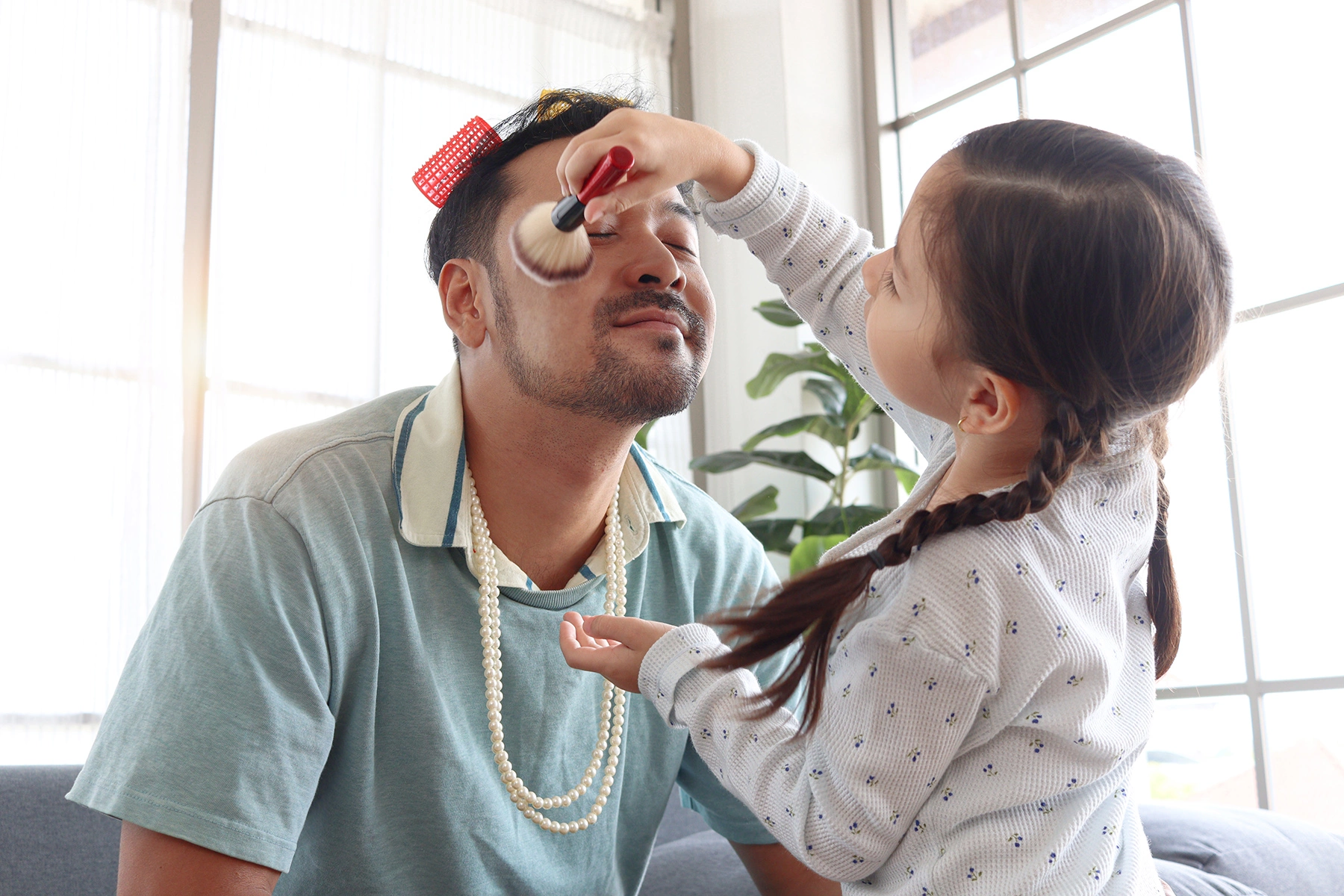
According to the Thai Child Adoption Act of 1979, those who want to adopt a child in Thailand must apply through the Department of Social Development and Welfare (DSDW) and meet these requirements:
- Be a Thai national (if a domestic adoption)
- Be at least 25 years old
- Have a legitimate spouse (this excludes single people)
- Be eligible to adopt a foreign child under the law of their own country
All inter-country adoption cases must go through the relevant adoption authorities for both countries.
Anyone wanting to give their child up for adoption must also adhere to their home country’s and Thai laws and apply through:
- The Thai Department of Social Development and Welfare
- The Thai Child Adoption Board
If a parent gives their child to a welfare shelter (สถานสงเคราะห์เด็ก), the period of temporary care lasts around a year. After 12 months, if the mother, father, or other relatives do not claim the child back and the authorities cannot contact them, the shelter will begin the adoption process.
Non-residents, visitors, and tourists giving birth in Thailand
If you are temporarily in Thailand (i.e., tourist or short stay), you can choose a public or private hospital for maternity healthcare.
Public hospitals are more affordable, but you may struggle to understand and communicate efficiently if you do not speak Thai. Conversely, private hospitals are more expensive but may have multilingual health professionals trained to care for non-Thais having a baby in Thailand. You will most likely to find these hospitals in cities such as Bangkok, Phuket, Samui, Chiang Mai, or Pattaya.
Below is a comparison of costs from a few private hospitals in Bangkok:
| Hospital | Vaginal birth cost | Caesarian section cost (up to ฿239,000 for twins) |
| Synphaet Lamlukka (Bangkok) | ฿32,000 | ฿44,000 |
| Bangkok Hospital (Bangkok and most other provinces) | ฿100,000 | ฿138,000 |
| Vejthani Hospital (Bangkok) | ฿60,000 | ฿82,000 |
| Samitivej Hospital (Bangkok) | ฿99,000 | ฿129,000 |
| Bangrumrad Hospital (Bangkok) | ฿139,000 (฿159,000 with spinal block) | ฿159,000 |
Remember to check if your private insurance policy includes maternity care outside your home country, as the UCS will not cover any of your medical expenses, and you won’t be able to claim any social security benefits.
You must also register the baby’s birth in Thailand, even if you are a tourist.
Will your child get Thai citizenship?
Giving birth in Thailand does not mean the child will get Thai citizenship. Only a baby born to Thai parents is considered a Thai national.
Therefore, a child born in Thailand to non-Thai parents is not automatically eligible for Thai citizenship, even if the family lives in the country. However, a naturalized Thai parent can apply for the child’s naturalization.
Parental leave in Thailand
Public maternity and childcare benefits for those paying social security in Thailand allow for:
- Maternity leave: with 50% of the mother’s annual earnings for 90 days
- Paternity leave: 15 days following the birth of a child
The private sector does not provide maternity leave.
Child benefits in Thailand
Child benefits are only available to Thai nationals under the UCS or expats who work and pay social security through the public sector.
Public health insurance for Thai nationals provides minimal child support payments of ฿600 per month for each child (and not more than three children) age 6 or under.
Useful resources
- Thai Social Security Office (SSO) – official information about parental leave and child benefits
- Department of Social Development and Welfare – government department regulating adoptions
- The Planned Parenthood Association of Thailand (PPT) – family planning information, resources, and support
- Childbirth & Breastfeeding Foundation of Thailand (CBFT) – information and support
- Bangkok Mothers & Babies International (BAMBI) – a CBFT project to support mothers and babies in Bangkok with various classes, groups, and activities
